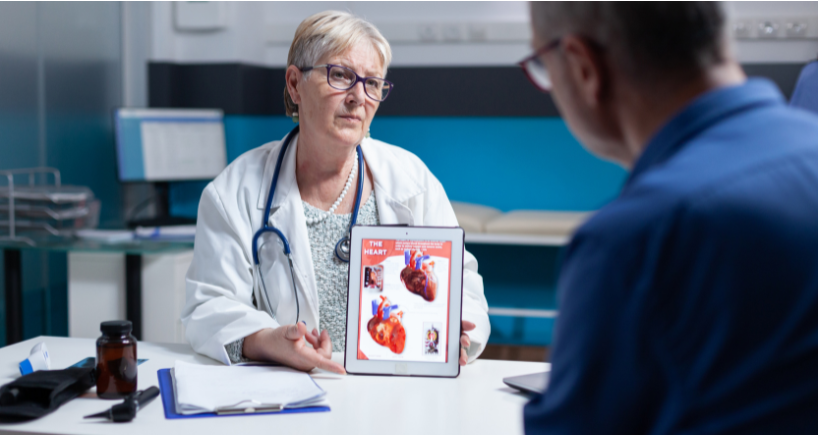
Cardio-Oncology: Managing Heart Health During Cancer Treatment
Cancer treatment, in particular, is often a long process of fighting not only against cancer but also against physical and psychological attacks. The relatively new subspeciality of cardio-oncology has been developed to address cardiovascular complications during and following cancer therapy. Cancer treatments, which can be effective, sometimes may cause harm to the heart, including symptoms of heart failure. It is, therefore, crucial to know how cancer treatment affects the heart to help, given the situation, in order to avoid further deterioration of the heart.
Why cancer treatment affects the heart?
Chemotherapy, radiation or other targeted therapies for cancer are intended to induce the cancer cells to die, but at times, they do it with healthy cells surrounding the heart as well. It is established that several cancer treatments affect the cardiovascular system in distinct ways.
- Chemotherapy: Some of these include anthracyclines like doxorubicin, which contain certain toxicity which primarily affects the heart muscle. These changes can cause reduced pump function of the heart or congestive heart failure.
- Radiation therapy: Radiation used for destroying tumours located in the chest area, such as breast or lung cancer, may affect the heart. This could cause harm to one’s vessels and arteries, thereby increasing instances of heart diseases later on in life whereby one is exposed to radiation.
- Targeted and immunotherapies: Although these therapies have long changed the face of cancer treatment, they have a downside. They have side effects on the heart. For example, drugs developed to address the HER2 receptor in treating breast cancer may cause cardiotoxicity, for instance, heart failure.
These therapies are very useful in managing cancer, but to prevent or if there are chances of the cancer therapy affecting the heart, then there is an ability to prevent or closely monitor, thus resulting in the reduction of risk.
Role of a cardio-oncologist
Cardio-oncologists have an important role in facilitating the possibility for cancer patients to receive needed treatment while potentially minimising or not affecting cardiovascular conditions.
Cardio-oncologists can:
- Check your heart health before you begin your cancer therapies.
- Evaluate the heart function in the course of the treatment by means of echocardiograms or blood examinations to test heart injury.
- Dose or change cancer treatments or other prescribed drugs with a view to sparing the heart.
As you have a caregiver managing your cancer and another managing your heart, it means you have an expert who is always thinking about both the disease and the heart and will always consider both when giving you treatment.
Protecting heart during cancer treatment
Preventing damage to the heart during the cancer process is possible, and the presented actions can improve the concerns. Here are some strategies to maintain heart health while fighting cancer:
Regular monitoring
Special tests of heart function are often done. Usual tests like echocardiograms or blood tests assist your doctor in detecting any abnormalities in your heart early enough. In this way, modifications of treatment can be made if needed to safeguard your heart.
Stay physically active
To the extent possible your treatment leaves you, maintaining an active lifestyle is a good way to maintain a strong heart. Low-impact exercises like walking or even gentle yoga will help circulation and put less pressure on the heart.
Healthy diet
In diet, it is important to consider heart health. Consuming recommended portions of fruits, vegetables, whole grains, and lean proteins and reducing the products high in unhealthy fat, sugar, and salt are good for the heart and the body during cancer treatment.
Manage stress
Stress is inevitable in cancer treatment, and stress is well known to affect the health of our hearts. Self-relaxation activities such as taking deep breaths, meditating, or practising mindfulness can go a long way in reducing this stress and therefore improving the health of the cardiovascular system.
Follow your doctor’s advice
Protect your heart by adhering to the dosage of the prescribed medications, ensuring that you attend all appointments, and reporting any symptoms.
Conclusion
That said, with the emergence of cardio-oncology, there is acknowledgement and a focus on the dangers to heart health inherent in cancer treatment. Advancements in ways to diagnose cardiovascular issues before they become critical and treat cancer while minimising cardiovascular risk are enabling more cancer survivors to successfully prevent and treat cardiovascular disease.
As patient-centred care gains more popularity, cancer survivors hope to live healthy lives after treatment with good heart health. That means by ensuring you work with a cardio-oncologist and be attentive to your heart health, you can reclaim your cancer experience without compromising the heart.
Being able to take care of your heart during cancer can be an extra burden, but it is actually an essential process in the recovery. When dealing with possible risks, it is possible to overcome them with the help of strategies created by your healthcare team and to remain strong at each stage of the process.



















